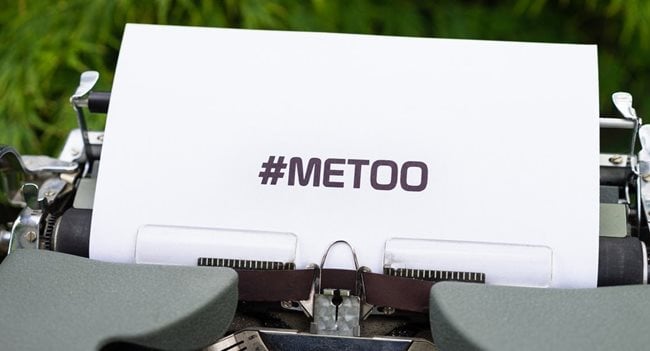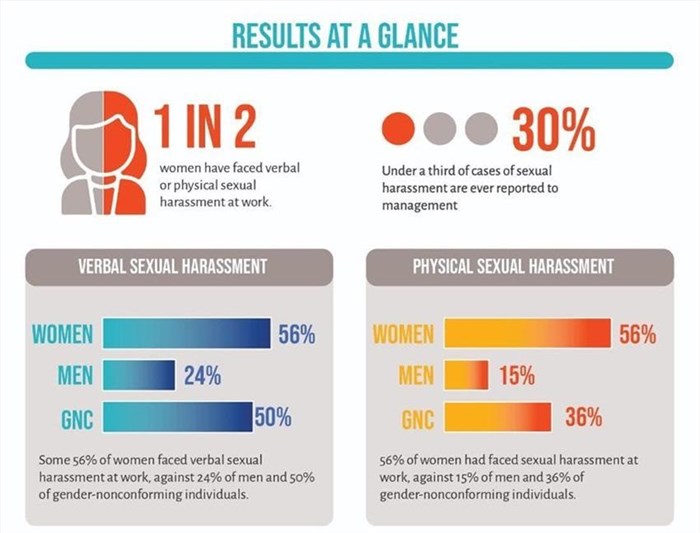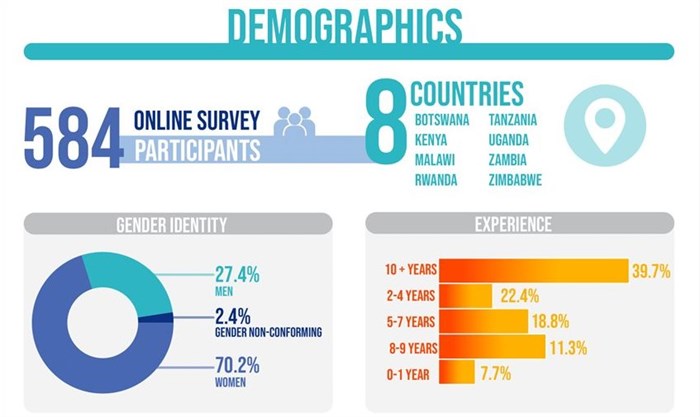New research released by the World Association of News Publishers (Wan-Ifra)'s Women in News programme has provided first-of-its-kind insight into the scale of sexual harassment in African media organisations. And the numbers are disturbing...
The eight-country study reveals that nearly one in two women has been sexually harassed at work – alongside one in five men and about two in five gender non-conforming individuals. Further, many cases of physical and verbal sexual harassment go unreported because the victims fear further victimisation and lack confidence in management systems and interventions. And even when action is taken, the results are often underwhelming.
The research, the first phase of a multi-region study undertaken in partnership with City, University of London, set out to collect credible information about the scale of harassment in news outlets in Africa and to establish what was being done to provide safer newsrooms. It surveyed 584 respondents from eight countries across the continent – Botswana, Kenya, Malawi, Rwanda, Uganda, Tanzania, Zambia and Zimbabwe.
Almost half of the respondents (46.12%) said they had witnessed at least one incident of sexual harassment, with nearly one in five saying they had seen five or more incidents at their workplaces. Yet, only 30% of cases are reported, as victims said they were afraid filing a formal complaint would lead to the loss of their jobs, negatively impact how they work, lead to retaliation or mean they would be negatively labelled.
Lack of trust in organisations
“The research highlights a lack of trust in the organisation, or sometimes a complete failure of management and systems to deal effectively with sexual harassment. This matters because the less confidence there is in an organisation’s ability to address the problem, the less likely people are to see value in calling it out, and the cycle will perpetuate,” said Melanie Walker, executive director of Women in News.
Almost half (46.7%) of those surveyed said their organisations had no sexual harassment policy, while 35.9% were unaware of what was in the policy and just 17.4% were aware of its contents. And while respondents said action was taken in 42% of the cases reported, the most common organisational response was to warn the perpetrator. This was followed by emotional support for the victim, dismissal of the case after review and training for staff on sexual harassment.
Perhaps the biggest barrier in reporting is that the perpetrators are often managers or supervisors – people with responsibility and power. Survey respondents identified their harassers as fellow employees (in 38% of cases), but 21.5% of the time, they were direct supervisors and in 19.5% of cases, members of higher management.
“There are solutions, however, beginning with media owners and managers acknowledging the problem exists and then committing to ensuring a safer working space, not just for women, but for all staff. It is vitally important to change the culture of silence around harassment. And this culture change can only come from the very top,” said Walker.
In supplementary interviews with 32 media managers across the surveyed countries, nearly half said they felt the industry no longer has a sexual harassment problem – this is despite more than half of them saying they had been the target of harassment. Further, only one in 10 of them had reported the incident – much lower than the overall trend of 30%, illustrating that the fear of victimisation cuts across all cadres in the organisations.
Women in News, which offers expert input on how to manage and prevent sexual harassment, is starting to see little victories within media organisations that have begun to actively manage the problem - starting with adopting policies and procedures that the staff can support. “But the numbers are very small and we still have a very long way to go before staff are convinced and comfortable that if there are incidents of sexual harassment, they can report them, and action will be taken without any victimisation,” said Jane Godia, WIN Africa director.
Policies and procedures need to be adopted
This research provides evidence of the need for media organisations to recognise the extent of sexual harassment and put in place steps to provide a safer working environment. “It all starts with a conversation on what is and isn’t acceptable behaviour in your media organisation – being explicit about sexual harassment, sharing definitions, noting behaviours that are unacceptable, and reiterating the right of every employee to be treated equally,” said Walker.
Results of similar surveys of Southeast Asia, Russia and the Arab Region will be released throughout the remainder of 2021. The initiative supports WAN-IFRA WIN’s efforts to bring greater regional and cultural diversity to the global conversation on sexual harassment in the media industry. Research is supported by the Swedish International Development Cooperation Agency (Sida).
The full results of the research are available at www.womeninnews.org/research.




















